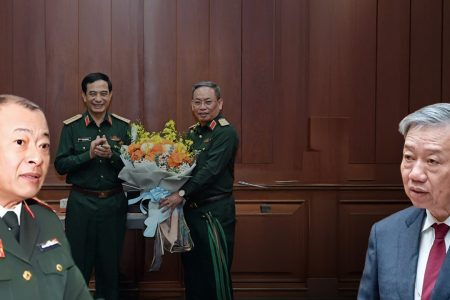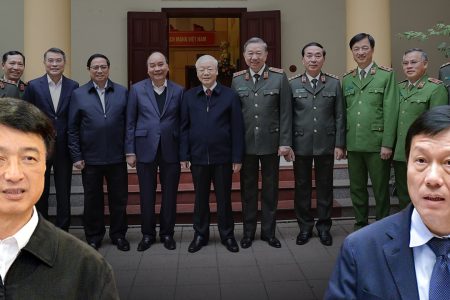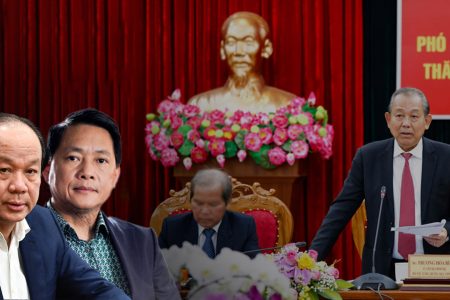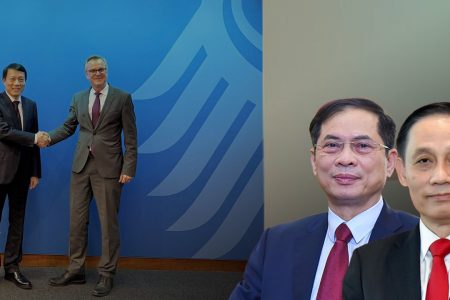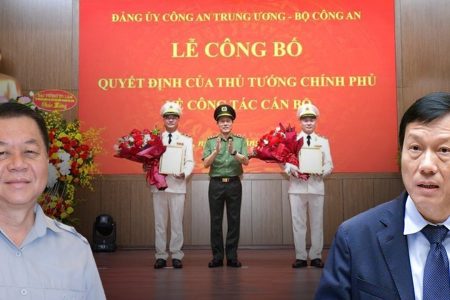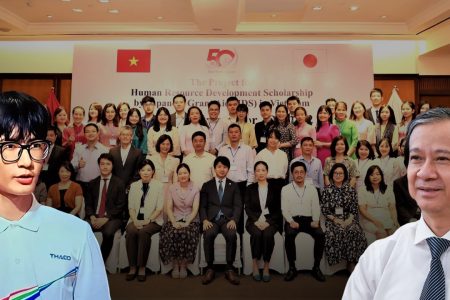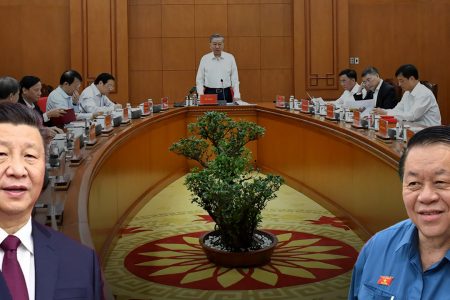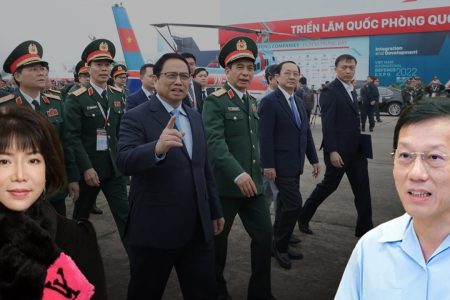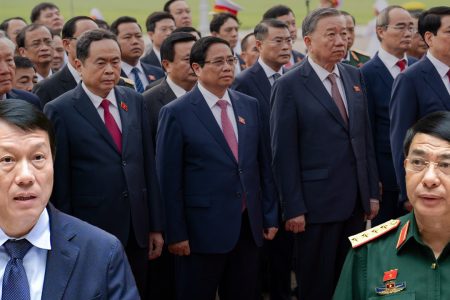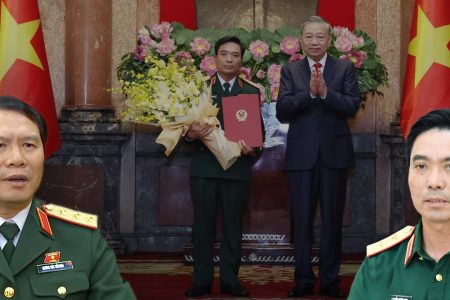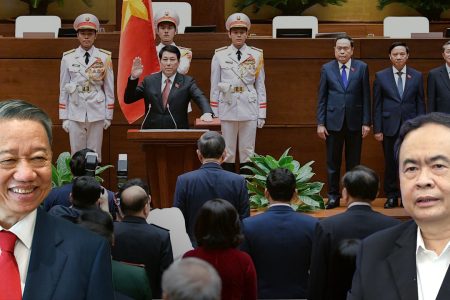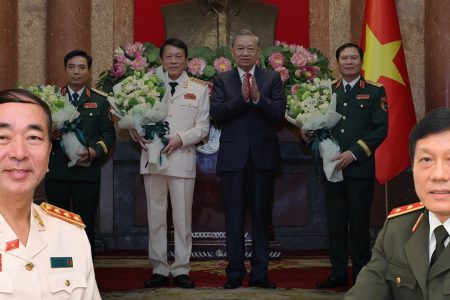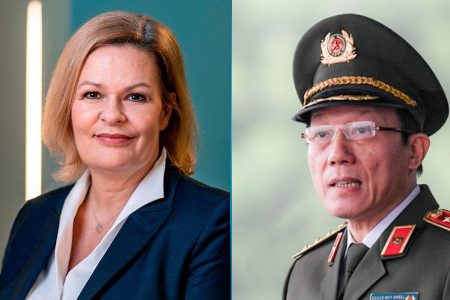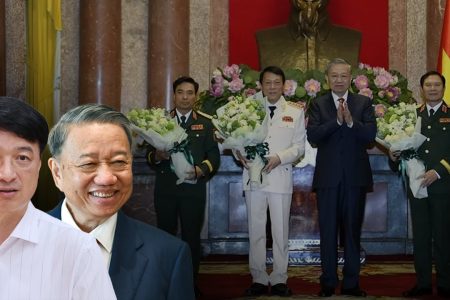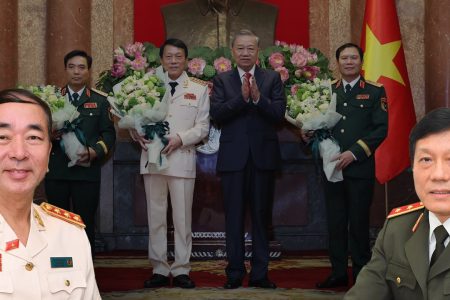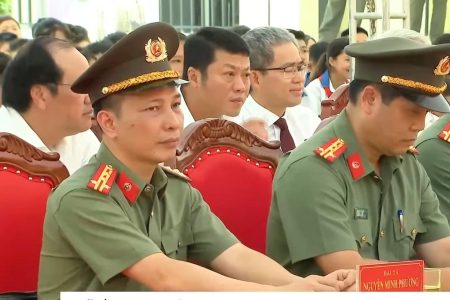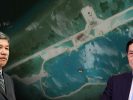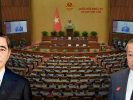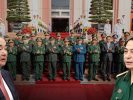
The National Assembly and the government in Vietnam are still “indebted” to the people and have much to do now, two civil society and human rights activists told the BBC on Sunday.
In Vietnam, the elections for the National Assembly and People’s Councils at all levels were held on May 23, an event called the “all-people’s festival” by the domestic media.
From Hanoi, Doctor of Science Nguyen Quang A, civil society activist, former director of the Institute for Independent Policy Review (IDS, a self-dissolved organization) said:
“This time it’s like every other election the Party has ever held, but there are two new ones: this time during the fourth outbreak of COVID-19, and every voter must declare a medical (at least in Hanoi), and the propaganda was noisier than before.”
From Hanau, Germany, lawyer Nguyen Van Dai, human rights activist said:
“I have followed the media and made phone calls to directly ask friends in all four regions: North, Central, South, and Central Highlands. I know that the Communist government of Vietnam has prepared quite well for the voting. This term’s National Assembly election, from the decoration of panels, posters, etc. of the polling station.
“At the same time, the authorities use all their forces to propagate, mobilize, coerce, and even implicitly threaten to pressure all voters to vote.”
Is there anything worth noting?
When asked if there are any new signals or remarkable things about this election, Mr. Nguyen Van Dai replied:
“I think the 2020 US presidential election has helped the Vietnamese people understand what a free election is.”
“Therefore, the 15th National Assembly election is a very important test of the Vietnamese people’s interest in this election in particular and the communist regime in general.”
Mr. Nguyen Quang A added:
“If the question is asked whether there is a unity or contrast, is there any difference between the media’s coverage of the election, and the state’s press coverage of the election, and what the people and the community do on the other? thinking and doing in this election, and then what people really care about, I would say it’s a world apart, and people don’t care much.”
Mr. Nguyen Van Dai said:
“I think there is a fundamental difference between the propaganda of the regime’s media apparatus and the people’s thinking.
The government still propagates that the National Assembly election is a demonstration of the people’s freedom and democracy, that the people exercise their right to elect a National Assembly of the people, by the people and for the people, on behalf of the people. The people exercise state power.
But in fact, the majority of Vietnamese people still have a catchphrase: “The Party nominates candidates, the people elect,” which means that the National Assembly deputies have been selected and decided by the Party, so voters’ votes are not important. In my opinion, the National Assembly is the Party’s, representing the Party’s power, not the people’s.”
Take voters’ temperature before entering to vote
When asked in his area of residence, how the election took place and whether the individual was harassed or obstructed in these days, Mr. Nguyen Quang A replied:
“I don’t go out, so I don’t know! Just listen to music and chants continuously. I have not been physically harassed. The area policeman asked my wife ‘Please vote.’
A security man has worked with me no less than a dozen times, yesterday and today sent the following message:
‘Going to vote is a demonstration of democratic rights, will you vote tomorrow? Our officials have some things to meet and discuss with you to better understand many aspects, can you arrange it?’ I Answer: After Covid-19 is over, I will consider.
‘Did you go to the polls today?’, that person asked and I replied: Who do you think you are to ask me that? I don’t think the President and the Prime Minister have the right to ask any citizen like that,” said Mr. Nguyen Quang A from Hanoi.
In many countries, citizens living abroad in these countries are not only entitled to vote remotely but also have delegates that can be elected by them to represent the overseas electorate.
When asked if he had any comparisons or thoughts on this, from Hanau, Mr. Nguyen Van Dai replied:
“The Vietnamese Communist government has also come up with the idea of having National Assembly members for overseas Vietnamese and organizing elections for overseas Vietnamese.
But through the actual surveys, it was found that overseas Vietnamese are divided into two: Most of them oppose the communist dictatorship of Vietnam, so they will boycott, the rest will not care. Therefore, the authorities have abandoned this idea.
In my opinion, if the Communist Party of Vietnam wants and accepts representatives of Vietnamese people abroad, it should accept political pluralism first.”
Voting is the duty of the people?
Also on this occasion, Mr. Nguyen Quang A added to the BBC:
“If I were asked if I could comment on the propaganda propagated and spread by the government’s media during this election, including the argument that the election is the ‘duty” of the people, I would have asked them what is the Constitution, the Law on Elections in Vietnam that says it is the duty of citizens?
The National Assembly of Vietnam has not yet revised the Constitution and the Law on Elections! Australia and some other countries make it mandatory to vote and I also support compulsory voting if there is a real election in the sense of democracy and fairness.”
Mr. Nguyen Van Dai added:
“I see this occasion there are very ridiculous statements like those of National Assembly Chairman Vuong Dinh Hue. Mr. Hue was quoted by the state newspaper as saying: ‘The strength coincides, the message of the people through the election.’
In my opinion, if the government doesn’t put pressure on people to go to the polls, the number of voters will not necessarily reach 50%.
According to the provisions of Article 27 of the 2013 Vietnamese Constitution, voting is a right of citizens aged full 18 years or older. There are no provisions of the Constitution, the law says that voting is an obligation.”
When will the real democratic election?
Two activists from Vietnam and Germany on this occasion mentioned and commented on when Vietnam will have real democratic elections.
Mr. Nguyen Quang A said:
“I would like to say that as long as Vietnam amends the Constitution and amends the Law on Elections so that political freedoms are guaranteed (including forming a political party; freedom to stand for election, etc.), those rights will be regulated. If it is clearly stated in international law that the International Covenant on Civil and Political Rights, which the Vietnamese government is obligated to enforce since 1982 when Vietnam acceded to this convention, then that amount can be considered as a true democratic election.
By the way, I would like to talk about legitimacy, it was the same five years ago – that is, key positions are decided before the election and that is not new.
The more people understand that voting in a current way doesn’t bring legitimacy, that’s their biggest the challenge – if the economy is in trouble or there’s an epidemic, or any other crisis that can have many challenges. unpredictable), and the only way to overcome this challenge is genuine political innovation.
The most indebted to the people is that the Vietnamese government (from the smallest cadre to the President, the Prime Minister) strictly implements the laws and constitutions that they have drafted and approved and DO NOT VIOLATE THEM as serious as it is today. Let alone the ‘debts’ of decades such as the association law or the law.”
And Mr. Nguyen Van Dai stated:
“The principle of free elections is that there must be multi-party and independent candidates to participate in the election freely. Along with that, there must be freedom of the press, which means that all citizens have the right to freely establish institutions press, radio, television, and uncensored.
Without the above two factors, there will be no free elections. As long as there are free elections, I think it must be due to the struggle of all Vietnamese citizens.
In my opinion, the National Assembly of Vietnam owes the people too much, because from the past to now, they have worked for the Party, not for the people, and the biggest debt is the legal documents directly related to the government. political human rights such as Law on protest, the law on the association, the law on political parties in addition to many other laws on basic rights of citizens.
Thoibao.de (Translated)



